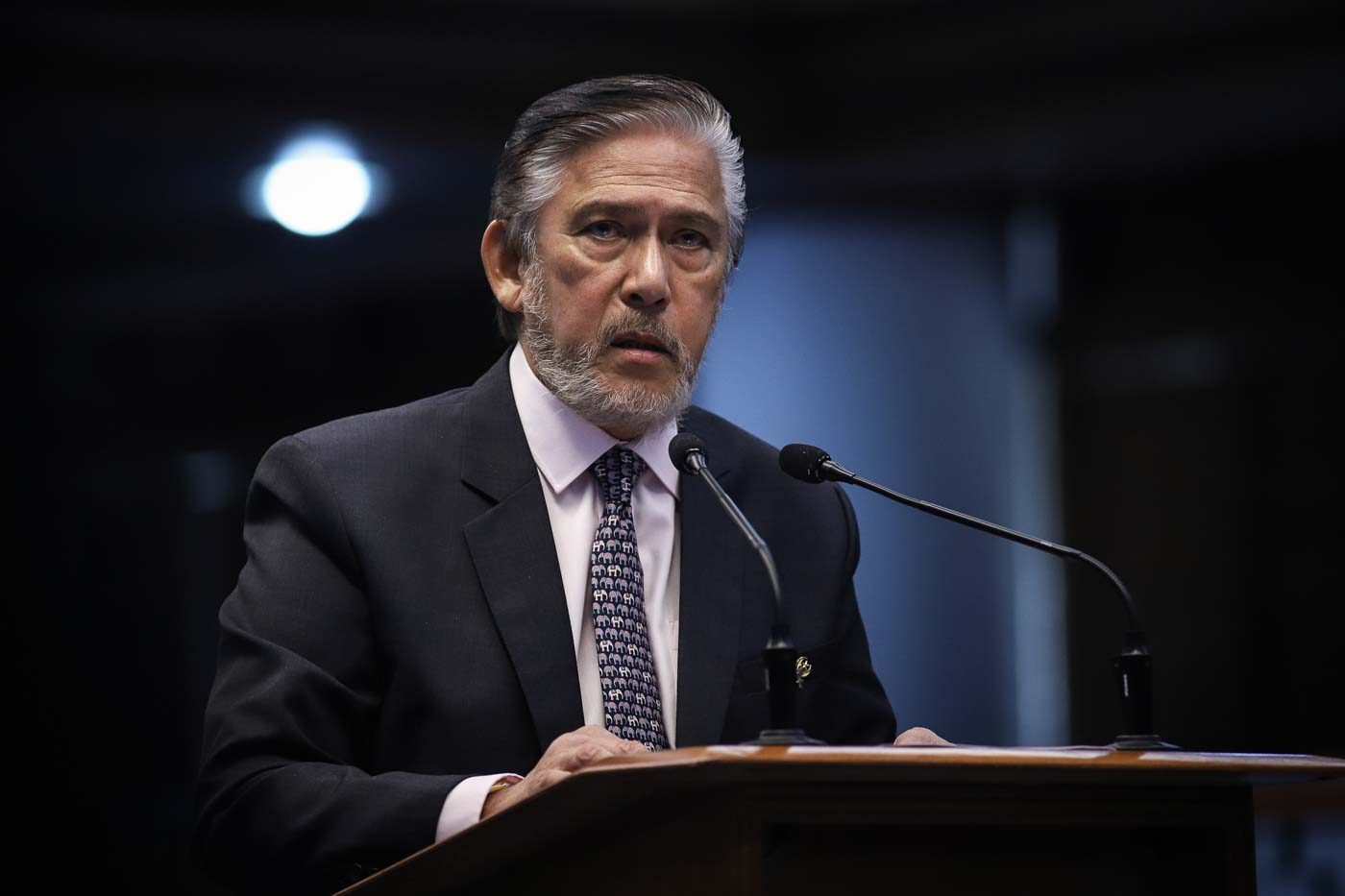SUMMARY
This is AI generated summarization, which may have errors. For context, always refer to the full article.

MANILA, Philippines – Principal authors of the anti-terrorism bill Senate President Vicente Sotto III and Senator Panfilo Lacson on Tuesday, June 2, asked critics to “read” it first, as groups slammed the President’s certification of the proposed tougher law against terrorism as urgent.
“I suggest they read the bill first before reacting. Terrorists or their supporters are the only ones who will be afraid of the bill,” said Sotto.
Lacson, meanwhile, said that there are “enough safeguards” in the measure. Free Legal Assistance Group believed otherwise, with its chair human rights lawyer Chel Diokno saying that the measure would “endanger basic rights and freedoms.”
The Senate version of the anti-terrorism bill was adopted by the House panel on public order and safety and on national defense on Friday, May 29. The President’s certification would allow the lower chamber to pass it on second and 3rd reading on the same day.
Sotto said on Tuesday that the measure is “as good as passed.” He added, “It will just need my signature. If it comes back to us after ratification, then I will transmit to the President.”
Wrong priorities?
Senator Risa Hontiveros and Senator Francis Pangilinan, however, questioned the “misplaced” priority in asking the anti-terror bill to be passed urgently. The two senators voted against the measure because of possible abuses, if passed.
“Valid at dapat pakinggan ang concerns ng publiko tungkol sa bill. Ang hiling nila ay maayos na programa para sa kanilang kaligtasan laban sa kinakaharap nating pandemic. Hindi ba dapat nandoon ang prayoridad natin?” asked Hontiveros.
(The concerns of the public about the bill are valid and should be heard. What they are asking for is a program that will ensure their safety against the pandemic. Shouldn’t that be prioritized?)
Pangilinan said the government should instead focus on the transportation crisis, improving the capacity for mass testing, and economic recovery.
“Whole of government di ba? Heal as one di ba? Gamot ba ang panukalang batas sa COVID-19 o gagamiting panakip-butas sa mga kapalpakan? Paano pigilan ang paglaganap ng COVID-19 at paano ibangon ang nakadapa nating ekonomiya ang bigyan ng panahon at solusyon, huwag ang anti-terror bill,” said Pangilinan.
(There should be a whole of government approach, right? We should heal as one, right? Is this measure a pill against COVID-19 or will be used to cover up the government’s failures? How we stop the spread of COVID-19 and how to help the economy to recover should be prioritized, not the anti-terror bill.)
Youth, progressive, and human rights groups asked lawmakers to junk the anti-terrorism bill, as they raised alarm over the broad definition of what constitutes as “terrorism.”
Under the Senate version of the bill, terrorism was definited as engaging in the following acts with the purpose of inciting fear and seriously destabilizing structures in the country, among others:
- Causing death or serious bodily injuries to any persons, or endangers a person’s life;
- Causing extensive damage or destruction to a government or public facility, public place, or private property;
- Causing extensive interference with, damage, or destruction to critical infrastructure;
- Developing, manufacturing, possessing, acquiring, transporting, supplying, or using weapons, explosives, or biological, nuclear, radiological, or chemical weapons;
- Releasing dangerous substances or cause fire, floods, and explosions.
Under Senate Bill 1083, those who will propose, incite, conspire, and participate in the planning, training, and facilitation of a terrorist attack could face a sentence equivalent to life imprisonment. The same punishment would be meted out to those who provide support and recruit anyone to be a member of a terrorist organization.
Suspected persons can be detained without a warrant of arrest and placed under 60-day surveillance, which may be extended to at most 30 days by the police or the military. – Rappler.com
Add a comment
How does this make you feel?
There are no comments yet. Add your comment to start the conversation.